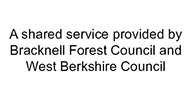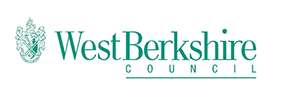Door-to-Door Sales Scams
From time to time you may get callers to your door either there to read a metre, ask for charity donations or looking to sell their services or products.
Doorstep scammers aren't always pushy and persuasive, they may seem polite or friendly. So if you're not expecting someone it's important to be vigilant when you answer the door, especially if you live on your own.
It can be very easy to fall victim to a scam, but you can be scam savvy if you know what to look out for.
What are some common types of door-to-door scams?
There are many different types of doorstep scams, some of the most common ones include:
• Rogue traders: A cold-caller may offer you a service you don’t really need. They may claim to have noticed something about your property that needs work or improvement, such as the roof, and offer to fix it for cash or an inflated price.
• Bogus officials: People claim to be from your utility company as a way of gaining access to your home. Always check the ID of any official, and if they're genuine they won't mind waiting while you check.
• Fake charity collections: A fraudster may pretend they're from a charity and ask you to donate money, clothes or household goods. Legitimate charities will all have a charity number that can be checked on the Charity Commission website.
• Made-up consumer surveys: Some scammers ask you to complete a survey so they can get hold of your personal details, or use it as a cover for persuading you to buy something you don’t want or need.
• Hard luck stories: Someone may come to your door and ask you to help them out with cash, ask to use your telephone or claim they're feeling unwell. The story is made up and intended to con you out of your money or gain access to your home.
How can I protect myself from door-to-door scams?
There are things you can do to feel safer when answering the door, such as:
• Putting up a deterrent sign. You could put a ‘no cold callers’ sign up on your door or window, which should deter any cold callers from knocking on your door.
• Setting up passwords for utilities. You can set up a password with your utility companies to be used by anyone they send round to your home. Phone your utility company to find out how to do this.
• Nominating a neighbour. Find out if you have a nominated neighbour scheme where a neighbour can help to make sure if callers are safe.
Contact your local Neighbourhood Watch or your local Safer Neighbourhood police team to find out more.
If someone does come to the door, it's important to remember the following:
• Do not donate to charities or buy products directly from someone selling door to door.
• Do not give personal information to someone who has just knocked on your door.
• Only let someone in if you're expecting them or they're a trusted friend, family member or professional. Don’t feel embarrassed about turning someone away.
• Always ask for identification before letting anyone you don't know into your house. Do not phone the number on their ID card, independently source a number for the company they claim to be from. Make sure the door is locked while you do this.
• Check credentials from an independent source, including a permanent business address and landline telephone number. The mobile phone numbers given on business cards are often pay-as-you-go numbers which are virtually impossible to trace.
• Don’t feel pressured. Don’t agree to sign a contract or hand over money at the door. Think about it and talk to someone you trust.
• Don’t share your PIN. Never disclose your PIN number or let anyone persuade you to hand over your bank card or withdraw cash.
• Take control by asking the questions. Ask for references from previous customers or to see examples of their work.
• Don’t sign on the spot – shop around. Get at least three written quotes to make sure you’re not being ripped off.
• If you’re suspicious, why not ask the salesman if you can take their photograph – on your mobile phone, for example? If the person is legitimate, they probably won’t mind.
• Take the time to think about any offer, even if it’s genuine. Don’t be embarrassed to say ‘No’ to people or ask them to leave.
If you’re in doubt, ask the person to leave or call Citizens Advice on 03454 04 05 06 or call the police. Call the police non-emergency number 101 if you’re not in immediate danger but want to report an incident. But call 999 if you feel threatened or in danger.
You can contact Public Protection Partnership (PPP) Trading Standards team on 01635 519930 or email tsadvice@westberks.gov.uk




